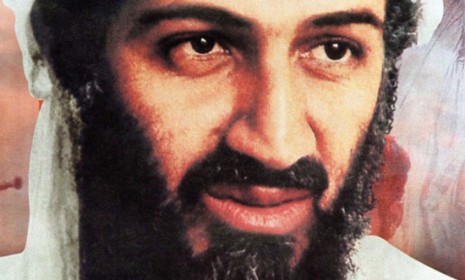Jailed for helping to catch bin Laden: Can the U.S. rescue Dr. Shakil Afridi?
Pakistan imposes a 33-year prison sentence on a doctor who partnered with the CIA to track down the world's most wanted terrorist

A free daily email with the biggest news stories of the day – and the best features from TheWeek.com
You are now subscribed
Your newsletter sign-up was successful
Pakistan has convicted a doctor named Shakil Afridi of treason and sentenced him to 33 years in prison because he tried to help the CIA identify Osama bin Laden. Afridi, viewed as a traitor by his government, was arrested after the U.S. raid that killed the al Qaeda leader, and Islamabad has ignored U.S. calls for his release. Is there anything Washington can do for him? Here's what you should know:
What exactly was Afridi's supposed crime?
He led a phony hepatitis B vaccination campaign in an attempt to get DNA samples from the children in the compound in Abbottabad where the al Qaeda leader was believed to be hiding. The CIA wanted to compare the genetic makeup of the kids to DNA samples collected from other bin Laden family members elsewhere to confirm that Osama and his relatives were indeed inside. Because Afridi cooperated with the U.S. in a secret operation that Pakistan considered a violation of its sovereignty, he was accused of high treason and conspiring against his own government.
The Week
Escape your echo chamber. Get the facts behind the news, plus analysis from multiple perspectives.

Sign up for The Week's Free Newsletters
From our morning news briefing to a weekly Good News Newsletter, get the best of The Week delivered directly to your inbox.
From our morning news briefing to a weekly Good News Newsletter, get the best of The Week delivered directly to your inbox.
Is there any hope for him?
Afridi can appeal, and his family might be able to get the verdict thrown out by arguing that the tribal court where he was tried has no jurisdiction. (Afridi was tried not in Abbottabad, but rather in Pakistan's semiautonomous tribal region on the Afghan border, where he once served as a surgeon.) Human rights groups have criticized the rules of the court, in which defendants have no right to legal representation and can't cross-examine witnesses. But Afridi is lucky in one sense: Treason doesn't carry the death penalty in the tribal regions. If he had been convicted under national law, he might have been executed.
Can't the U.S. step in to help?
Secretary of State Hillary Rodham Clinton has called for Afridi's release, and the State Department disputes the treason charge since Afridi was helping to catch a terrorist — something both Washington and Islamabad have vowed to do. Some in Congress want to go further. The U.S. should cut off the hundreds of millions in aid that we send to Islamabad, says Rep. Dana Rohrabacher (R-Calif.), to "send a message that it doesn't pay to confront America."
A free daily email with the biggest news stories of the day – and the best features from TheWeek.com
Sources: Associated Press, CNN, Express Tribune, Los Angeles Times